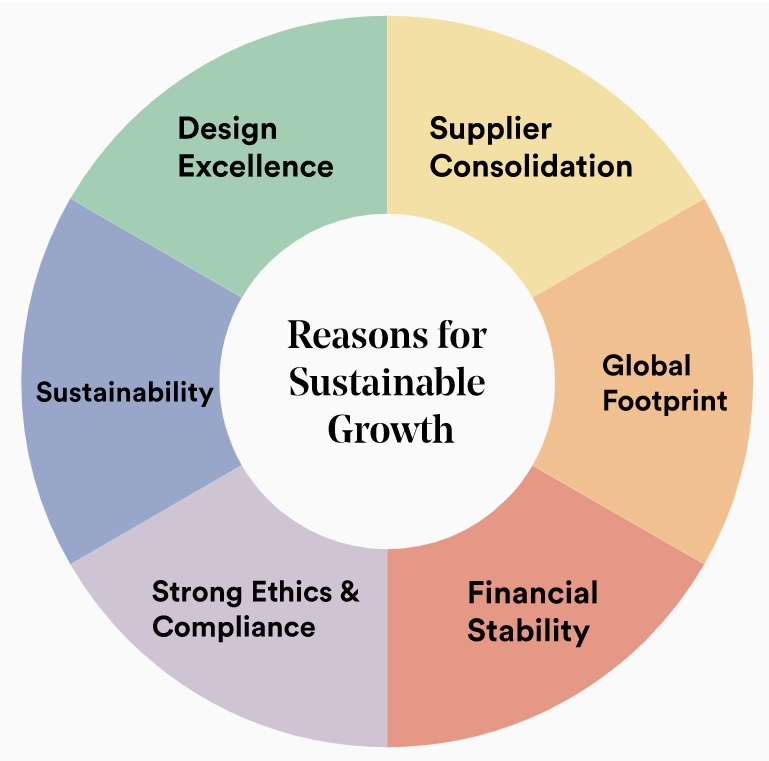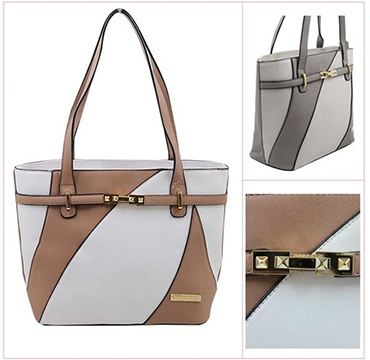Sustainability and Ethical Practices in Fashion Bag Manufacturing
Time of publication: August 14th ,2024The fashion industry is constantly changing, so it's now super important for brands to focus on sustainability and ethics in order to meet consumer demands and establish their identity. This shift means that partnering with manufacturers who prioritize sustainable production methods and fair labor practices has become absolutely vital for brands. In this section, we'll explore why sustainability is crucial, ways to determine if a manufacturer follows ethical practices, as well as the efforts of leading manufacturers in setting industry standards.
The Growing Importance of Sustainable Manufacturing
The demand for sustainability in fashion isn't just a trend anymore—it's something people expect. Consumers are becoming more aware of how their purchases impact the environment and they're looking for brands that share their values. As a result, sustainable manufacturing practices have become increasingly important.
Environmental Impact: Fashion is a super resource-heavy industry that has a big impact on water use, carbon emissions, and waste. Sustainable manufacturing tries to lessen these effects by using eco-friendly materials, cutting down on waste, and using energy-efficient methods. Brands that team up with sustainable manufacturers can shrink their environmental footprint - something that's becoming more crucial for environmentally aware customers.
Consumer Trust and Brand Loyalty: Brands that prioritize sustainability can build stronger relationships with their customers. According to a report by McKinsey & Company, consumers are more likely to support brands that show they care about the environment and society. This trust leads to brand loyalty, which is crucial in a competitive market.
Regulatory Compliance: The thing is, lots of places have these rules now that say businesses gotta follow certain environmental standards. So if you team up with a sustainable manufacturer, it means your brand is all good and won't get into any trouble with the law or face any fines.
For more insights into why sustainability is crucial in fashion, Vogue Business.

How to Evaluate a Manufacturer's Commitment to Sustainability
Evaluating a manufacturer's commitment to sustainability requires a thorough understanding of their practices and values. Here are key factors to consider:
Material Sourcing: Sustainable manufacturing starts with the materials. Look for manufacturers that source eco-friendly materials, such as organic cotton, recycled polyester, or vegan leather. These materials should be certified by recognized organizations like Global Organic Textile Standard (GOTS) or Forest Stewardship Council (FSC).
Production Processes: When it comes to sustainable production, it's all about reducing waste, cutting down on energy use, and effectively managing water. So when you're talking to potential manufacturers, make sure to ask them about how they handle waste, where their energy comes from, and what steps they take to minimize water usage. And if you come across manufacturers who use renewable energy or have zero-waste policies in place, that's definitely something worth noting.
Certifications and Accreditations: The certifications are a solid way to evaluate how sustainable a manufacturer is. Look for certifications like ISO 14001 (Environmental Management), Fair Trade, or the Higg Index, which measures environmental and social sustainability throughout the supply chain.
Ethical Labor Practices: Sustainability isn't just about the environment; it's also about making sure that workers are treated fairly and have safe working conditions. Take a look at the manufacturer's labor practices, such as fair pay, reasonable working hours, and no forced or child labor. The Ethical Trading Initiative and SA8000 are benchmarks to look for in this area.
Transparency and Reporting: A manufacturer that is committed to sustainability should be open and honest about their practices and willing to share detailed reports on how they impact the environment and society. Regular audits and assessments by third parties are good signs that a manufacturer truly cares about sustainability
To dive deeper into evaluating sustainable practices in fashion manufacturing, resources like Sustainable Apparel Coalition and Fashion Revolution provide extensive information and tools.
Case Studies: Leading Manufacturers with Strong Ethical Practices
To understand what leading manufacturers are doing in terms of sustainability and ethics, let’s look at a few examples:
Everlane’s Commitment to Transparency: Everlane, a brand famous for being super transparent, teams up with manufacturers who are all about sustainability and ethics. They provide comprehensive information regarding their factories, including audits, and they're committed to using eco-friendly materials like recycled plastic and organic cotton. This not only makes them stand out but also sets a benchmark for others in the industry.
Patagonia’s Environmental Leadership: Patagonia is a pioneer in eco-friendly manufacturing, completely focused on environmental care. They team up with manufacturers committed to using recycled materials and reducing carbon emissions. Moreover, Patagonia demonstrates their commitment by investing in regenerative agriculture and advocating for fair labor practices, setting an exceptionally high standard for sustainability in the fashion industry.
Eileen Fisher’s Vision of Circular Fashion: Eileen Fisher is a leader when it comes to circular fashion, all about recycling, upcycling, and responsible sourcing. They team up with manufacturers who are totally on board with their mission to reduce textile waste and make clothes last longer. Eileen Fisher's Renew and Waste No More programs are like the ultimate examples of how manufacturers and brands can join forces to create a more sustainable fashion world.
The case studies show how teaming up with manufacturers who prioritize sustainability and ethics can boost a brand's reputation and contribute to a more responsible fashion industry.
For more information about sustainable fashion practices, Fashion for Good has case studies and resources that showcase innovative approaches in the industry.
By making sustainability and ethical practices a priority in your manufacturing decisions, not only will your brand meet the growing demands of today's consumers, but it will also contribute to creating a more responsible and sustainable fashion industry. This commitment can set your brand apart in a competitive market, build trust with consumers, and ensure long-term success.

